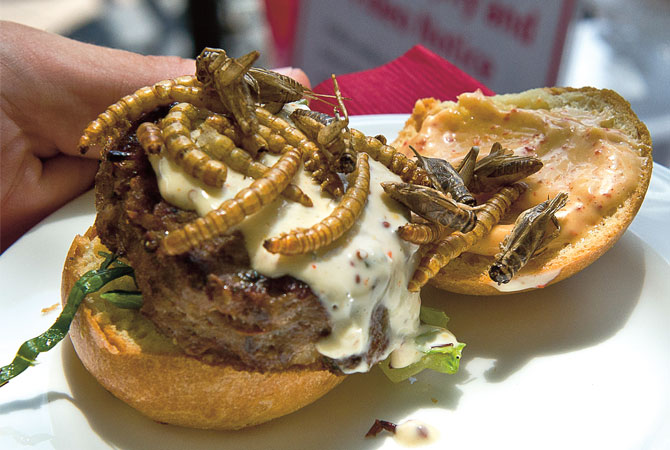
EU spends millions to promote eating of insects
The European Union is investing more than 8.5 million euros to make insects available, both as food and feed, across Europe.
The European Union is providing 8.68 million euros in funding for the Sustainable Insect CHAIN (SUSINCHAIN) programme, which aims to use insects to provide Europe with novel sources of protein for both animal feed and human food. Through various measures, the project would ensure that
by 2025, 20 per cent of animal proteins should be replaced by insect protein in human food and 10 per cent in animal feed.
Several publications have already been published through the project. As V4NA reported earlier, the European Commission, together with the leftist mainstream media, has recently started to propagate the idea that Europeans should learn to eat bugs. To support this narrative, a number of studies have also been published under the SUSINCHAIN project. Many scientific publications deal with the ways of mass production of insects and their use as food and feed.
In fact, the European Union recommends eating insects in the first place because they are an excellent source of protein and the ecological footprint of insect farming is much smaller than that of the conventional food industry, especially the meat industry. It also promotes the benefits of insect eating through EIT Food, an EU organisation.
In a recent article on the organisation’s website, they ask why Europeans are reluctant to eat insects. The organisation says,
37 per cent of Europeans surveyed said they would be open to insect-based foods, while many opined that it would be unsafe to consume insects.
As to the safety of insect consumption, the organisation only made mention of the fact that over 2 billion people already follow an insect-based diet.
The article, however, emphasizes that insects can indeed be environmentally friendly and healthy alternatives to conventional meat, as they can provide high-quality protein and nutrients for humans and animals. They are also rich in fibres and micro-nutrients such as copper, iron and magnesium. However, there is a risk, which is hidden somewhere in the middle of the article:
allergy from insects varies greatly depending on the species consumed, which means that eating them poses an increased risk to certain people.
The organisation also writes that producing and consuming insects as food is considered extremely efficient, thanks to their high feed conversion efficiency. On average, insects can convert 2 kg of feed into 1 kg of insect mass, whereas cattle require approximately 8 kg of feed to produce 1 kg of body weight gain. Combined with factors such as required resources for farming and production arrangements, this means that greenhouse gas emissions by most insects is significantly lower than in the case of conventional livestock.
It is not only the European Union, however, that sees the consumption of insects as a way into the future. Bill Gates, one of the world’s most influential people on the planet, is also among this diet’s supporters. Through his foundation, he spent millions on promoting and funding sustainable insect production technologies.The Bill & Melinda Gates Foundation writes the project – funded by some 2.2 million dollars – began in August 2021, not long before the EU accepted the use of insects as foodstuff. The project’s main target area is Central and East Africa, where they are planning to establish a viable insect production plant within 34 months.
Tags:

